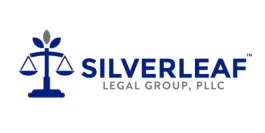When a loved one passes away, family members often face not only emotional challenges but also complex financial questions. I’ve noticed one question comes up repeatedly: “Do I have to use life insurance money to pay the deceased person’s debts?”
This concern is completely understandable. After all, life insurance is often purchased specifically to provide financial security for loved ones after we’re gone. The good news? In most cases, you don’t have to use life insurance proceeds to pay off the deceased’s debts. But as with anything in law, there are important exceptions you should understand.
The General Rule: Life Insurance Usually Passes Debt-Free
Let’s start with the fundamental principle: life insurance proceeds typically go directly to named beneficiaries without becoming part of the deceased person’s estate. This means these funds generally aren’t subject to the claims of creditors.
Why? Because life insurance is considered a “non-probate asset” – something that transfers outside the probate process where debts are settled. When you’re named as a beneficiary on a policy, you have a direct contractual right to receive those funds regardless of what debts the deceased might have had.
This protection is by design. Life insurance exists precisely to ensure financial support for your loved ones after you’re gone, not to pay off your creditors.
Critical Exceptions Every Beneficiary Should Know
While the general rule offers significant protection, there are several important exceptions that could affect your situation:
- 1. When the Estate Is Named as Beneficiary
The most common exception occurs when the deceased person named their estate (rather than specific individuals) as the policy beneficiary. In this case, the insurance proceeds become part of the estate and can be used to pay creditors before any remaining money passes to heirs.
This scenario often happens unintentionally – perhaps the policy owner never updated beneficiary designations after major life changes, or they simply didn’t understand the implications of naming the estate. This highlights why regular review of beneficiary designations is crucial to proper estate planning.
2. Unpaid Policy Premiums
Before paying out the death benefit, insurance companies will typically deduct any unpaid premiums from the proceeds. This makes sense – if premiums weren’t fully paid, the benefit may be reduced accordingly.
3. Federal Estate Tax Considerations
For larger estates, federal estate tax can become a concern. If the deceased owned their life insurance policy at death, the proceeds may be included in the taxable estate, potentially triggering estate tax liability. This primarily affects more substantial estates, as the federal estate tax exemption is quite high ($12.92 million per individual in 2023).
Many families use irrevocable life insurance trusts (ILITs) to keep insurance proceeds outside the taxable estate – a strategy worth discussing with both your estate planning attorney and financial advisor if you have a larger estate.
4. Medicaid Estate Recovery
If the deceased received Medicaid benefits for long-term care, states have recovery programs that seek reimbursement from estates after death. While life insurance with named beneficiaries typically avoids this recovery, if the estate is the beneficiary, those proceeds could be vulnerable to Medicaid claims.
5. Missing or Deceased Beneficiaries
When a policy has no named beneficiary (or when all named beneficiaries have predeceased the insured), the proceeds typically default to the estate. Once there, they become available to creditors just like any other estate asset.
This underscores the importance of naming contingent (backup) beneficiaries and keeping all beneficiary designations current.
How Creditors May Try to Access Life Insurance Proceeds
I’ve seen cases where persistent creditors attempt to reach life insurance proceeds even when they shouldn’t be able to. They might:
- – Send demand letters directly to beneficiaries, hoping they don’t know their rights
- – File claims against the estate, even when the proceeds aren’t part of the estate
- – Allege fraudulent transfers if policies were purchased or beneficiaries changed when the insured was insolvent
This is why understanding your rights is crucial – and why consulting with a probate attorney can save both money and stress during an already difficult time.
Protecting Your Family Through Proper Planning
The best way to ensure life insurance fulfills its intended purpose is through thoughtful planning:
- 1. Review beneficiary designations regularly – especially after major life events like marriage, divorce, births, or deaths
- 2. Consider using specific contingent beneficiaries rather than defaulting to your estate
- 3. Explore trusts for complex situations – particularly when beneficiaries are minors or have special needs
- 4. Keep good records of your policies, premiums paid, and beneficiary selections
- 5. Communicate your intentions to your family and the executor of your estate
With proper planning, life insurance can provide exactly what it’s meant to: financial security for your loved ones, regardless of what debts you might leave behind.
When to Seek Professional Guidance
If you’re a beneficiary who has recently received life insurance proceeds and are facing pressure from creditors, or if you’re planning your own estate and want to ensure your life insurance achieves your goals, professional advice is invaluable.
Working with an attorney who specializes in probate and estate planning helps ensure that your rights are protected and that your loved ones receive the financial support you intend to provide.
Whether you’re planning ahead or dealing with the aftermath of a loved one’s passing, we’re here to help navigate these complex waters. Contact our office in Cedar Park today to schedule a consultation and gain the peace of mind that comes with knowing you’re making informed decisions about your family’s financial future.

